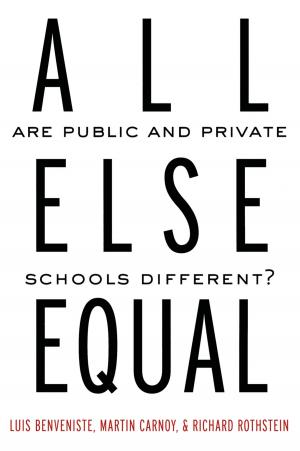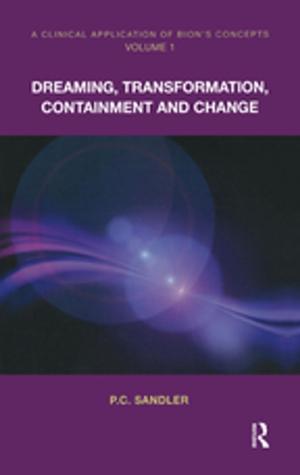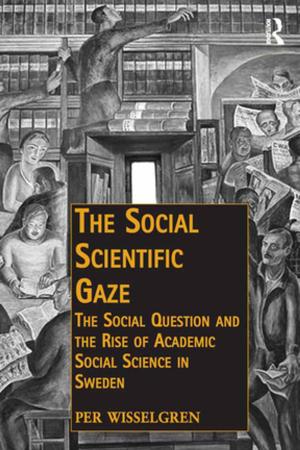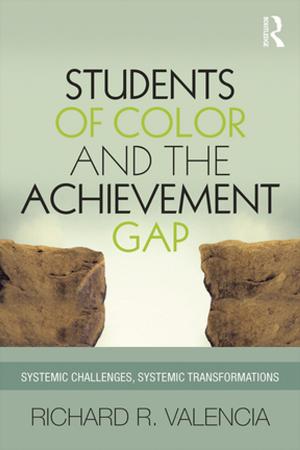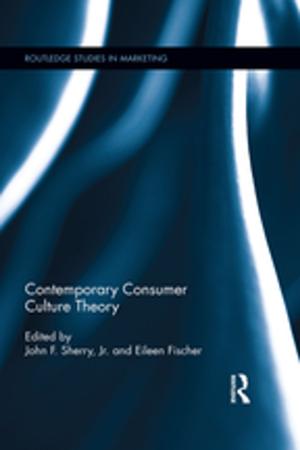The Road to Mass Democracy
Original Intent and the Seventeenth Amendment
Nonfiction, Social & Cultural Studies, Political Science, Government, Democracy| Author: | C. H. Hoebeke | ISBN: | 9781351474870 |
| Publisher: | Taylor and Francis | Publication: | July 5, 2017 |
| Imprint: | Routledge | Language: | English |
| Author: | C. H. Hoebeke |
| ISBN: | 9781351474870 |
| Publisher: | Taylor and Francis |
| Publication: | July 5, 2017 |
| Imprint: | Routledge |
| Language: | English |
Until 1913 and passage of the Seventeenth Amendment to the United States Constitution, US senators were elected by state legislatures, not directly by the people. Progressive Era reformers urged this revision in answer to the corruption of state "machines" under the dominance of party bosses. They also believed that direct elections would make the Senate more responsive to popular concerns regarding the concentrations of business, capital, and labor that in the industrial era gave rise to a growing sense of individual voicelessness. Popular control over the higher affairs of government was thought to be possible, since the spread of information and communications technology was seen as rendering indirect representation through state legislators unnecessary. However sincerely such reasons were advanced, C. H. Hoebeke contends, none of them accorded with the original intent of the Constitution's framers.The driving force behind the Seventeenth Amendment was the furtherance of democracy exactly what the founders were trying to prevent in placing the Senate out of direct popular reach. Democracy was not synonymous with liberty as it is today, but simply meant the absolute rule of the majority. In full reaction to the egalitarian theories of the Enlightenment, and to the excesses of popular government under the Articles of Confederation, the Constitution's framers sought a "mixed" Constitution, an ancient ideal under which democracy was only one element in a balanced republic. Accordingly, only the House of Representatives answered immediately to the people. But as Hoebeke demonstrates, the states never resisted egalitarian encroachments, and had settled for popular expedients when electing both presidents and senators long before the formal cry for amendment. The Progressives' charge that a corrupt and unresponsive Senate could never be reformed until placed directly in the hands of the people was refuted by the amendment itself. As required by the Constitutio
Until 1913 and passage of the Seventeenth Amendment to the United States Constitution, US senators were elected by state legislatures, not directly by the people. Progressive Era reformers urged this revision in answer to the corruption of state "machines" under the dominance of party bosses. They also believed that direct elections would make the Senate more responsive to popular concerns regarding the concentrations of business, capital, and labor that in the industrial era gave rise to a growing sense of individual voicelessness. Popular control over the higher affairs of government was thought to be possible, since the spread of information and communications technology was seen as rendering indirect representation through state legislators unnecessary. However sincerely such reasons were advanced, C. H. Hoebeke contends, none of them accorded with the original intent of the Constitution's framers.The driving force behind the Seventeenth Amendment was the furtherance of democracy exactly what the founders were trying to prevent in placing the Senate out of direct popular reach. Democracy was not synonymous with liberty as it is today, but simply meant the absolute rule of the majority. In full reaction to the egalitarian theories of the Enlightenment, and to the excesses of popular government under the Articles of Confederation, the Constitution's framers sought a "mixed" Constitution, an ancient ideal under which democracy was only one element in a balanced republic. Accordingly, only the House of Representatives answered immediately to the people. But as Hoebeke demonstrates, the states never resisted egalitarian encroachments, and had settled for popular expedients when electing both presidents and senators long before the formal cry for amendment. The Progressives' charge that a corrupt and unresponsive Senate could never be reformed until placed directly in the hands of the people was refuted by the amendment itself. As required by the Constitutio

